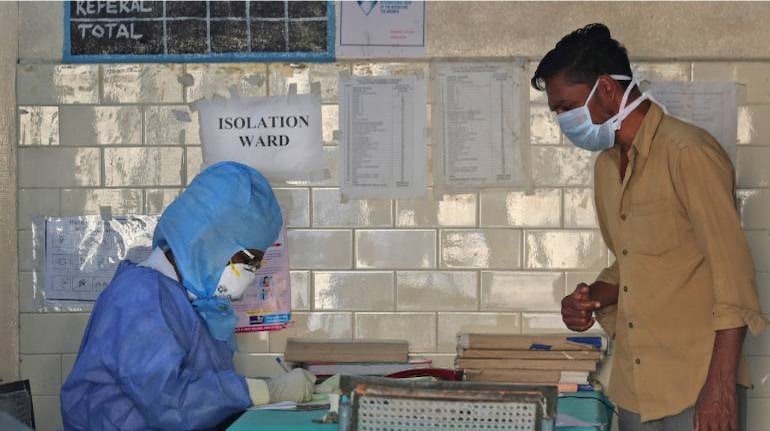



A total of 586 hospitals in the country have been marked as dedicated COVID-19 hospitals with capacity of over one lakh isolation beds and 11,500 ICU beds reserved for coronavirus patients, the Union Health Ministry said on Saturday.
Addressing a press briefing, Health Ministry's Joint Secretary Lav Agarwal said the government has taken early preemptive action to identify COVID-19 hotspots in the country.
In the absence of a lockdown and other containment measures, there would have been over 8.2 lakh coronavirus cases in the country till April 15, he said.
According to the Health Ministry, 1,035 fresh COVID-19 cases and 40 deaths due to the disease were reported in the last 24 hours across the country, taking the total number of cases to 7,447 and deaths to 239 nationwide.
Agarwal said, "586 dedicated COVID-19 hospitals have been earmarked at the state and centre level. One lakh isolation beds and 11,500 ICU beds have been reserved for coronavirus patients across country. This figure is being augmented every day, based on the evolving situation."
He further said, "We had done an analysis on the rate of growth in cases. We observed Janta curfew on March 22 and went for lockdown from March 25. According to statistical analysis, in the absence of lockdown and other containment measures, there would have been 41 per cent increase and 8.2 lakh coronavirus cases by April 15," Agarwal said.
He asserted that measures like social distancing, lockdown and other containment efforts are important in fighting the battle against coronavirus.
"The response of Government of India has been preemptive, proactive and to the extent of being over-prepared and through our graded approach, we have aligned our response with the evolving situation. Ministry of AYUSH has prepared a set of guidelines on respiratory health and to boost immunity. Districts have been asked to incorporate this in district-level contingency plan as well," he said.
Agarwal also asserted that there is no shortage in the country of anti-malarial drug hydroxychloroquine, cited by many as a viable therapeutic solution to counter the coronavirus infection.
Responding to a question, a senior official of the Indian Council of Medical Research (ICMR) said, "Five lakh antibody testing kits ordered by ICMR have not been received yet".
The ICMR official said over 1.7 lakh samples have been tested in country so far for COVID-19, of which 16,564 samples were tested on Friday.
Follow our full coverage of the coronavirus pandemic here.
Discover the latest Business News, Sensex, and Nifty updates. Obtain Personal Finance insights, tax queries, and expert opinions on Moneycontrol or download the Moneycontrol App to stay updated!
Find the best of Al News in one place, specially curated for you every weekend.
Stay on top of the latest tech trends and biggest startup news.